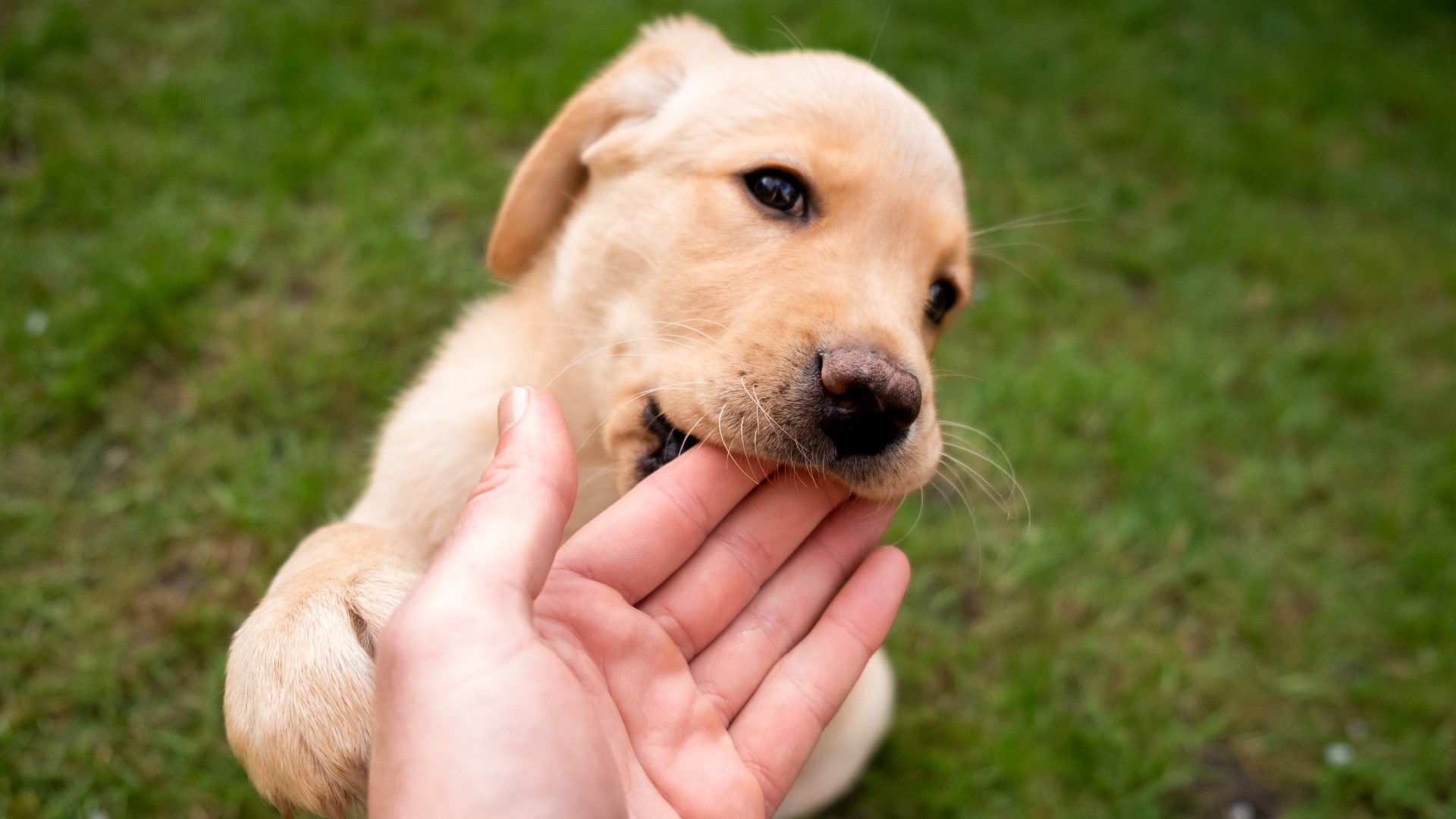Trainer shares two simple tips for surviving the puppy biting phase
Is your puppy's biting getting you down? Then this trainer's two tips are just what you need

Get the best advice, tips and top tech for your beloved Pets
You are now subscribed
Your newsletter sign-up was successful
Of all the phases your puppy will go through in their first year of life, excessive mouthing and nipping are often cited among pet parents as one of the most challenging.
Even if you've provided your fur friend with a range of the best puppy toys, you may still find that they seek to bite everything in sight - including you. While this behavior can be frustrating (not to mention painful!), it's worth bearing in mind that your canine companion isn't deliberately trying to hurt you.
According to Juliana DeWillems, owner and head trainer at JW Dog Training, most puppy biting behavior is completely normal and developmentally appropriate. "Puppies explore the world with their mouths, especially in those early months," she explains."
In a video shared on Instagram, DeWillems explains that what most people don't understand is that excessive biting that's intense and relentless is usually a puppy trying to communicate. "Excessive nipping can be a response to a puppy being hungry, thirsty, needing to go to the bathroom, feeling physically uncomfortable or sick, or being overtired and needing a nap."
The good news is that while you can't avoid the puppy biting stage altogether, DeWillems says there are two simple things you can do to help reduce the behavior:
A post shared by JW Dog Training & Behavior (@jwdogtraining)
A photo posted by on
1. Make sure your puppy gets lots of sleep
"Sleep is a huge factor for how mouthy puppies will be," DeWillems explains. "The more sleep they get throughout the day and night, usually the less mouthy they are. This is another reason why a predictable, consistent routine with regular nap times is really important for puppies. Proactively making sure your puppy is sleeping enough helps so much with nipping. Often times when people come to us wanting help with their puppy’s mouthiness, we discover the puppy is not getting nearly enough sleep during the day."
2. Make use of a dog pen
"Using a pen can be really valuable and important for putting a physical barrier between you and your puppy's sharp teeth when they're overly tired and nipping a lot," advises DeWillems. Moving them to their pen can also help them realize that they're tired and help them start to settle down."
Get the best advice, tips and top tech for your beloved Pets
Our guide to the best dog playpens has a range of great options that will give your puppy plenty of space to rest.
DeWillems stresses that puppy biting behavior is something that needs to be well managed, as opposed to punished or corrected. "Using a lot of management and listening to your puppy will make getting through this very normal phase much easier," she says.
If you've tried the tips outlined above by DeWillems and don't notice any improvement in your puppy's biting behavior after a few weeks, we recommend reaching out to a professional dog trainer who will be able to provide you with some 1:1 guidance and support.
Check out our guide to puppy behavior for more tips on solving the most common problems you may encounter in the first year of your little fur friends life.

Kathryn is a freelance writer who has been a member of the PetsRadar family since it launched in 2020. Highly experienced in her field, she's driven by a desire to provide pet parents with accurate, timely, and informative content that enables them to provide their fur friends with everything they need to thrive.
Kathryn works closely with vets and trainers to ensure all articles offer the most up-to-date information across a range of pet-related fields, from insights into health and behavior issues to tips on products and training.
When she’s not busy crafting the perfect sentence for her features, buying guides and news pieces, she can be found hanging out with her family (which includes one super sassy cat and a kitten), drinking copious amounts of Jasmine tea and reading all the books.
She has written for a range of publications, including Fit&Well, Top Ten Reviews, LiveScience, Goodto, and Product Hunt.
